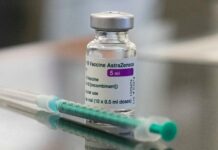America’s Food and Drug Administration has approved moxidectin as the first new treatment for river blindness in 20 years.
It adds new ammunition to the fight to eliminate river blindness (or onchocerchiasis).
Ivermectin is the only drug currently in use and is distributed annually to entire communities living in endemic areas.
It has significantly reduced river blindness, but the global campaign to eliminate the disease requires also more effective drugs.
Around 200 million people are at risk for the disease that causes severe itching, disfiguring skin conditions and visual impairment, including blindness. More than 99% of infected people live in 31 African countries.
The FDA decision followed priority review of a new drug application for river blindness submitted by the not-for-profit biopharmaceutical company Medicines Development for Global Health (MDGH).
River blindness (onchocerciasis) is caused by the parasitic worm Onchocerca volvulus and transmitted to humans through exposure to repeated bites of infected black flies.
Recently published findings of a large phase-3 clinical study in the Democratic Republic of Congo, Ghana and Liberia showed that moxidectin is superior to ivermectin in suppressing the presence of parasites in the skin that cause the disease and are taken up by blackflies.
“We are delighted about the FDA’s decision,” says TDR Director John Reeder. “It is a milestone toward our vision to have moxidectin made available to African countries to quicken the river blindness endgame.”
The approval is seen as a model use for priority review voucher (PRV) for non-profit purposes.
Priority review speeds up the new drug application process to six months, compared to the standard 10 months, and approval gives the applicant a transferable voucher (the PRV) that can be used or sold for priority review of another drug.
“This voucher to MDGH fully meets the original spirit of the PRV programme to promote research and development of affordable and accessible drugs for neglected tropical diseases. Without this programme, MDGH would not have been able to raise the funds to complete all of work for the new drug application,” says Reeder.


























